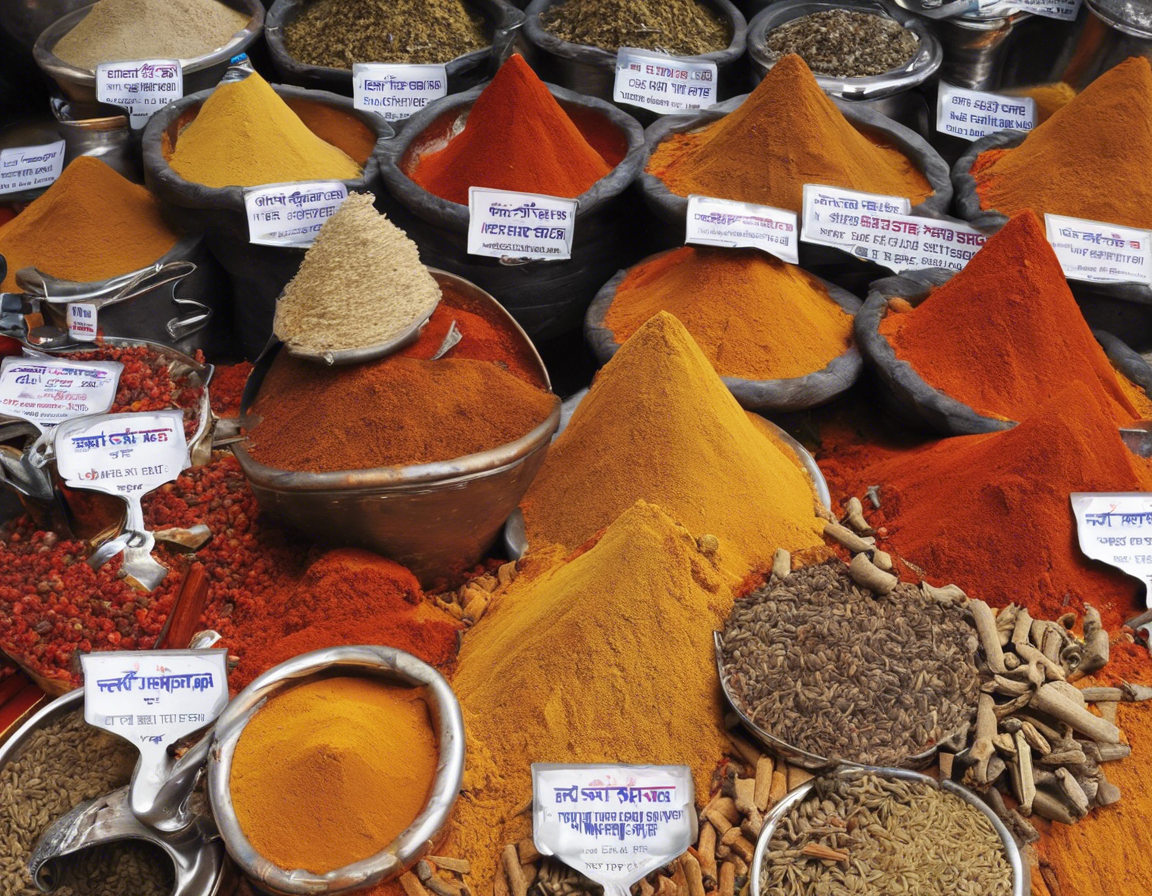Introduction
Recently, the ban on Mdh Everest Spices has caused quite a stir among consumers and food enthusiasts alike. This action has not only impacted the availability of these products but has also raised concerns regarding food safety and quality standards. In this comprehensive guide, we will delve into the details surrounding the ban on Mdh Everest Spices, including the reasons behind it, the potential implications, and what consumers should be aware of moving forward.
The Ban on Mdh Everest Spices: A Closer Look
Reasons for the Ban
The ban on Mdh Everest Spices was initiated by the Food Safety and Standards Authority of India (FSSAI) due to the presence of monosodium glutamate (MSG) in the products. MSG is a flavor enhancer commonly used in various processed foods but has been linked to health concerns when consumed in excessive amounts. The presence of unauthorized food additives and high levels of lead contamination in some Mdh Everest Spice products were additional factors that led to the ban.
Implications of the Ban
The ban on Mdh Everest Spices has had significant implications for both the company and consumers. Loss of revenue and reputation damage are major consequences for Mdh Everest Spices, as they face challenges in rebuilding trust among consumers. For consumers, the ban has created concerns about the safety and quality of other food products in the market.
Consumer Awareness
In light of the ban on Mdh Everest Spices, consumers are advised to be vigilant about the food products they purchase and consume. Reading food labels carefully, avoiding products with undisclosed additives, and opting for certified brands can help ensure food safety and quality. It is essential for consumers to stay informed about food recalls and bans to make informed choices about their dietary habits.
What to Look for in Spice Products
When purchasing spice products, consumers should pay attention to certifications such as FSSAI approval and ISO standards. These certifications indicate that the products have undergone stringent quality checks and are safe for consumption. Additionally, checking the ingredient list for any additives or contaminants, and opting for organic or natural alternatives can help mitigate potential health risks associated with spice consumption.
Frequently Asked Questions (FAQs)
1. What are the health risks associated with consuming MSG?
Consuming MSG in excessive amounts has been linked to health issues such as headaches, nausea, and numbness. It is essential to moderate the intake of MSG and opt for natural flavor enhancers in food.
2. How can consumers identify lead contamination in food products?
Lead contamination in food products is not easily detectable by consumers. However, choosing reputable brands with quality certifications can minimize the risk of exposure to lead contamination.
3. Are all spice products tested for additives and contaminants before being sold to consumers?
While reputable brands and certified products undergo rigorous testing for additives and contaminants, some smaller manufacturers may not adhere to the same standards. Consumers should be vigilant and opt for trusted brands to ensure the quality and safety of spice products.
4. How does the ban on Mdh Everest Spices impact the spice market in India?
The ban on Mdh Everest Spices has led to increased scrutiny and awareness regarding food safety standards in the spice market. Consumers are now more cautious about the products they purchase, leading to a potential shift towards certified and trusted brands.
5. What steps can consumers take to report suspicious food products to authorities?
If consumers come across suspicious food products or suspect food safety violations, they can report their concerns to the FSSAI or local food safety authorities. Providing details such as product information and purchase location can help authorities investigate and address the issue promptly.
Conclusion
The ban on Mdh Everest Spices serves as a reminder of the importance of food safety and quality standards in the food industry. Consumers play a vital role in ensuring the products they purchase meet these standards by staying informed, vigilant, and opting for certified brands. By understanding the reasons behind such bans and taking proactive measures, consumers can protect their health and well-being while contributing to a safer food market.
